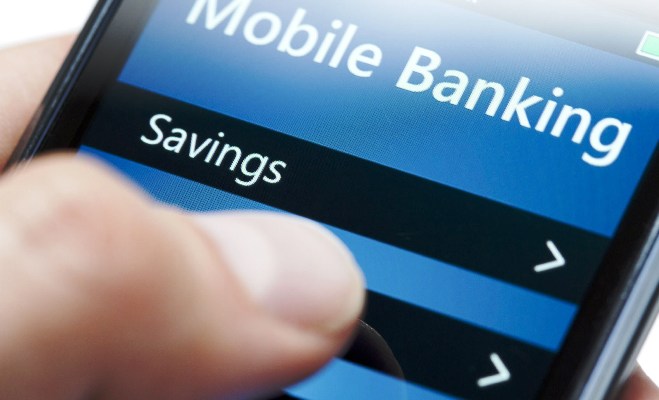By Llyod Busuulwa
Traditional payment methods that are largely reliant on cash exchangesexpose countless people to the risk of COVID-19 infections. However, emerging technologies provide alternatives such asusing a Contact-less enabled mobile phone or card to makeno-touch payments across terminals.
With that hind-sight, will the far-reaching effects of the Pandemic have the World, and particularly Africa, ready to finally adopt digitalpaymentsnow that our lives may depend on it?
Our antiquated payments system wasn’t ready for the digital era, and it is even less prepared for a contagious pandemic. In the typical day, one may make a half dozen payments — Taxi, the gas station, lunch, utilities, grocery store, restaurants, etc. But there is almost no traditional payment mechanism that doesn’t expose both parties — the payer and payee — to the risk of a COVID-19 infection.
With millions of transactions every day, there are many opportunities to spread everything from the common cold and influenza to more serious diseases like the deadly Covid19.
For most, having stacks of bills is psychologically reassuring, and is often what people, even the wealthiest, turn to in an unpredictable time like this. One of the first instincts people have in a situation like natural disasters is to get some cash in the house. ‘Everyone always takes money, and you don’t need electronic networks to use it,’ is the typical thinking.
The fibrous surfaces of currency (notes) provide ample space for bacteria and viruses to make themselves at home. And the longer that cash stays in circulation, the more opportunity it has to become contaminated. Next time you lick a fingertip or thumb while counting out bills, think about it; you could just be taking in the virus into your bodythrough one of those soft parts of the body!
The question today is, with so many alternatives to currency and coin available, why not simply ditch physical currency?
Covid19 will accelerate the adoption of digital payments and other alternatives to cash, chequesand and any other paper instruments to effect a transaction.
All the issues cited earlier would suggest to many that handling money that passes through so many hands poses a health risk. This is not to say that mobile devices are, by themselves, free of germs by any means. What makes them potentially more appealing from a COVID-19 viewpoint is that digital payment solutions allow consumers to make in-person payments without contact with another person. They can “wave and pay” instead of handing and being handed cash.
Banks today, are rallying customers to use the Digital Financial Solutions and Alternative Service Channels including Automated Teller Machines (ATMs), Cash Deposit Machines (CDMs); Agent Banking, Mobile & Internet Banking, Point of Sale (POS) Acquiring, Online Purchases, Multi-functional Kiosks among many others.
These are heavily non-cash payment solutions, but offering a seamless platform to effect payment between the different parties in the transaction. Such channels, take for example mobile banking enables one transfer funds from their account (buyer) to the account or mobile wallet of the Saler or service provider in exchange for goods or a service – clearly eliminating cash. In such times of this pandemic – such a transaction would reduce the risk of transmitting the virus that could potentially be on the Cash.
To continue serving customers during this era; Banks dropped charges/fees for some Digital Payments over the ATM, Agency Banking but more critical for movement of money from one’s Bank Account to their mobile money wallets to enable cashless payments. This was in response to the Central Bank plea to ensure that there’s less contact with physical cash. It also made it easier for customers to avoid the banking halls (implementing the social distancing) – atleast for now unless they really must physically go to a branch
In Uganda, we’ve heard testimony of consumers using their mobile phones for online shopping/purchases and the sellers (shop keepers, market vendors), delivery companies requesting for wallet payments instead of cash all in the light to curb the transmission of the Virus that could potentially be on cash but also support the transactions.
Resorting to Digital Payments during Era of Pandemics or Epidemics isn’t new in Africa; At the height of the Ebola crisis in 2014; Sierra Leone turned to mobile wallets to make fast, accurate, and secure payments to Response Workers; as cash payments were slow, inaccurate, and open to graft and theft.As such, digitization reduced the time taken to pay health workers from over one month to around one week, putting an end to payment-related strikes. In doing so, digital payments strengthened Sierra Leone’s capacity to contain the Ebola disease, treat those infected, and ultimately save lives; thus delivering a cost savings of more than US$10 million by eliminating double-payment, reducing fraud, removing the costs of physical cash transportation and security, and person-person contact that could enhance further spread of Ebola.
This case study sets out key lessons from Sierra Leone’s experience using digital payments to help combat Ebola.
However, it also is important acknowledging that many of our people are not aware of these options, and fear of losing their money to “air” and hence always turn back to cash.
Banks therefore have to make the investments and take the time to educate consumers about these options and their benefits.
Further, the Government, Central Bank and Uganda Bankers Association have a role to play especially in the area of awareness, pricing and consumer protection in light of Digital Financial Services and Payments.
This is bearing fruition, as in the National Financial Inclusion Strategy, BOU intends to support the adoption of non-cash channels through both financial literacy and regulation (like the National Payments Systems Bill currently before Parliament). This should accelerate innovations to drive accessibility, usability, relevance and effective adoption of these Alternative Service Channels.
Everyone has a role to play!
Few industries have been rocked by digital disruption as much as banking. This is particularly evident in the payments space, where dominant incumbents must contend with a dizzying onslaught of challenges. Will customers be more embracing and adoptive of digital wallets now that our lives may very well depend on this, now and post COVID 19?
The author is Head of Alternative Channels at dfcu Bank





